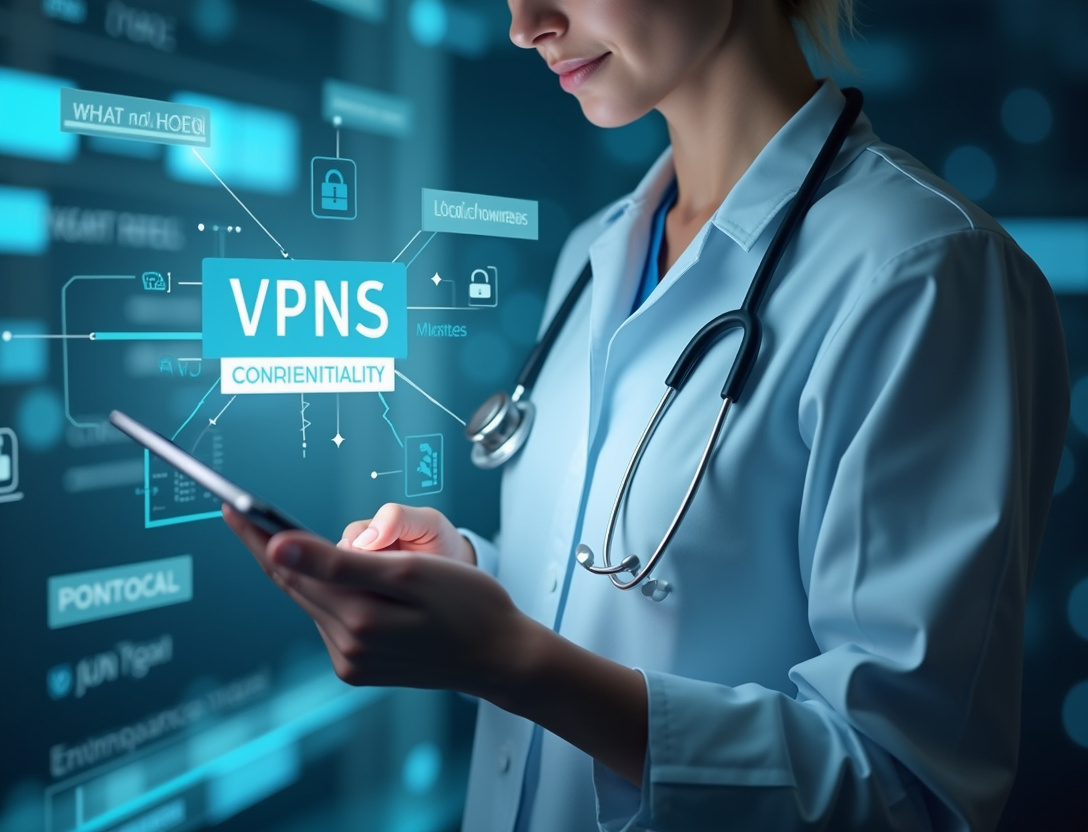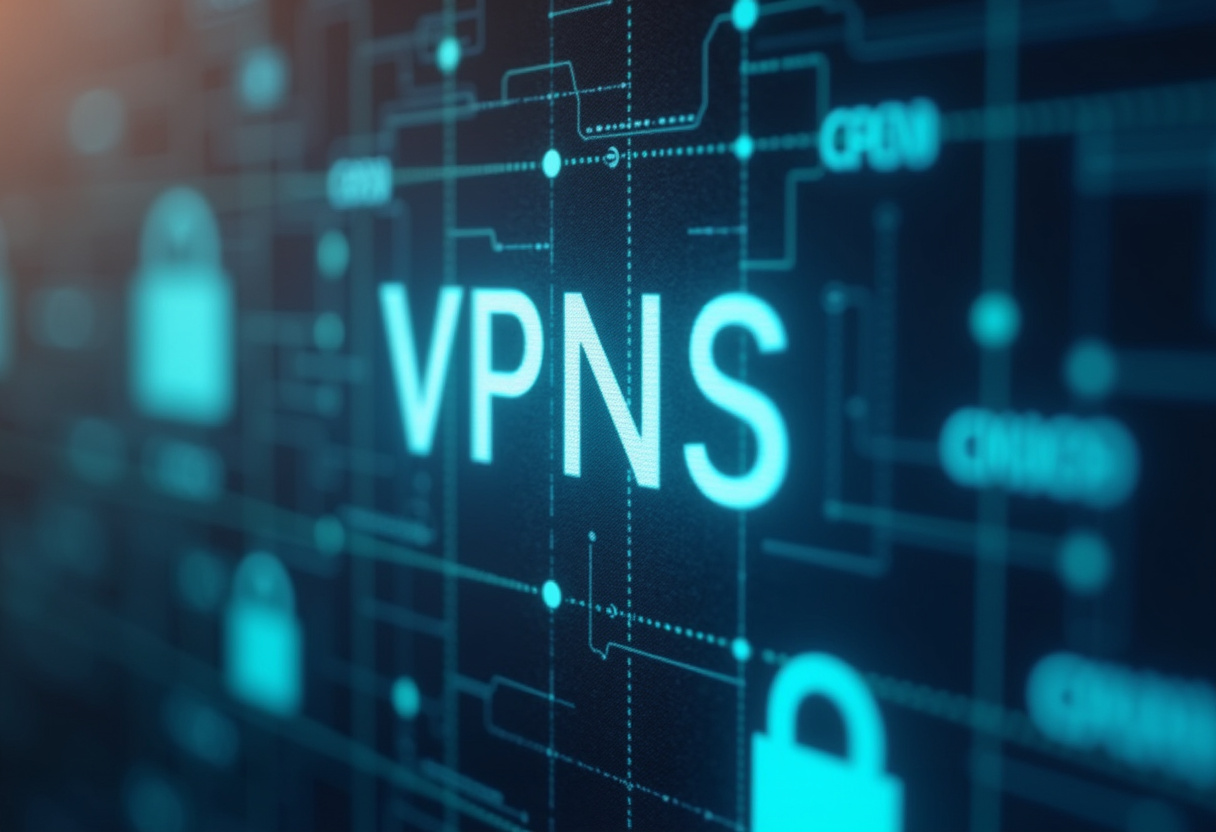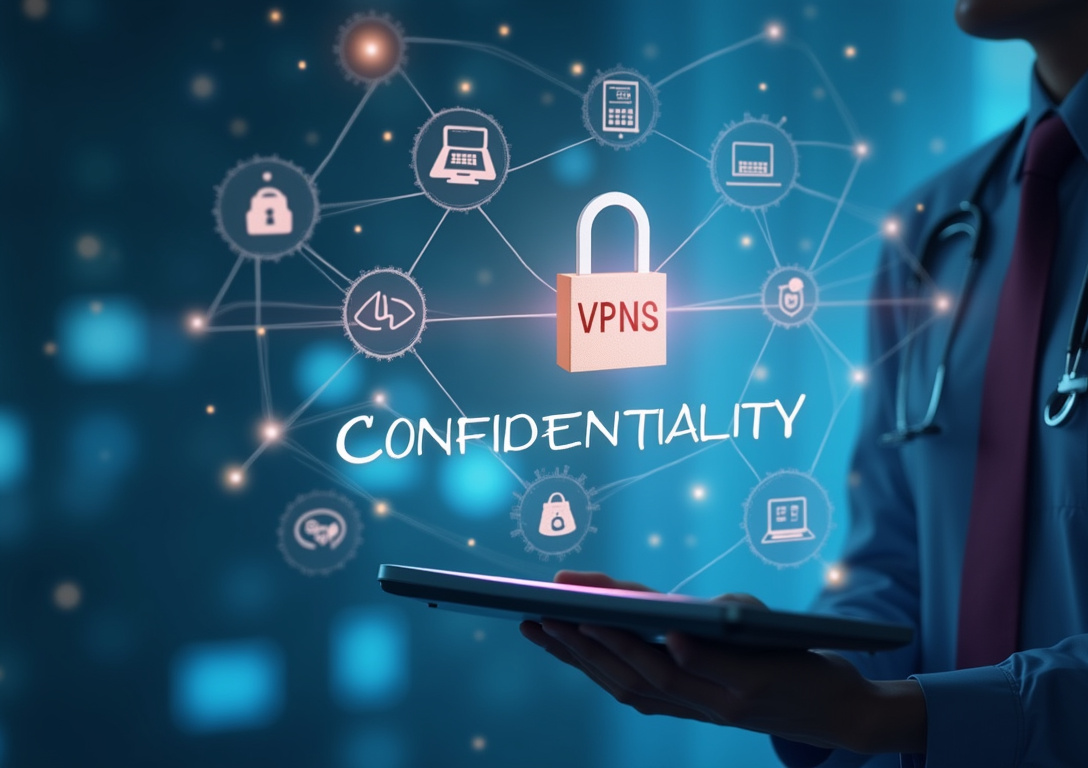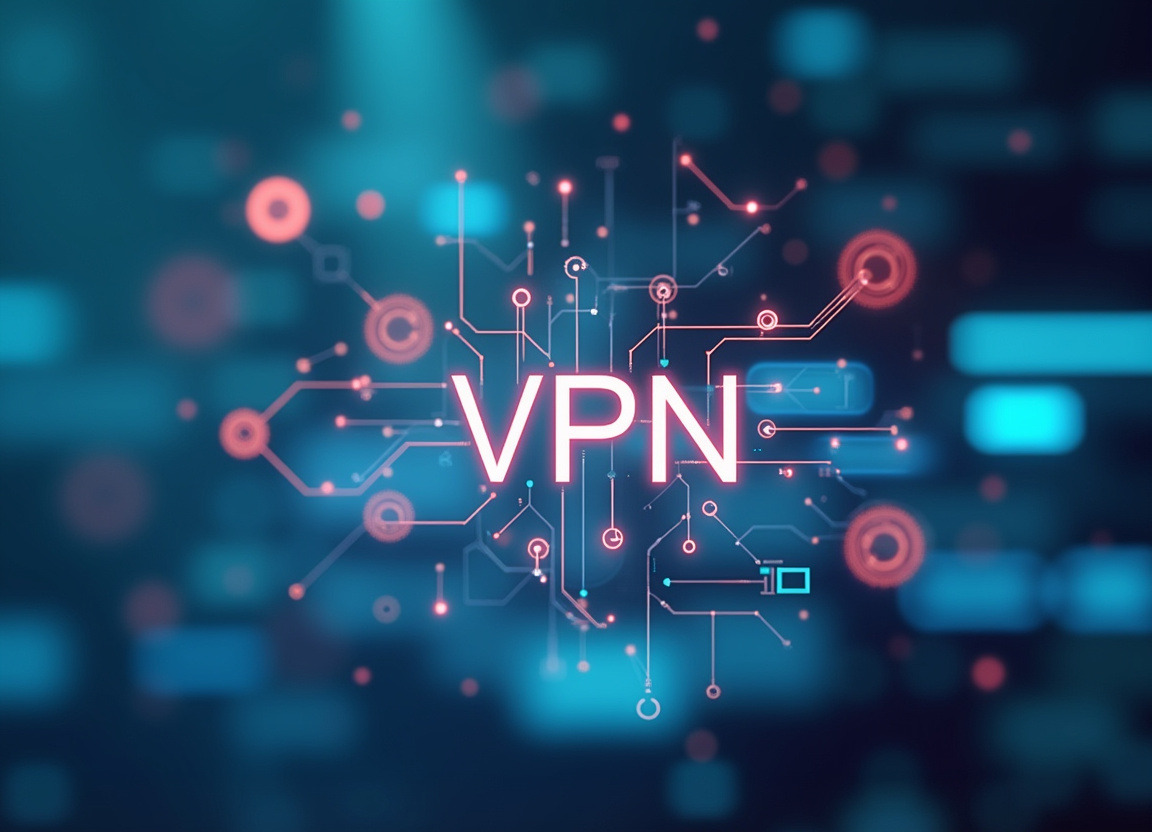VPNs for Dental Practices: Safeguarding Patient Records
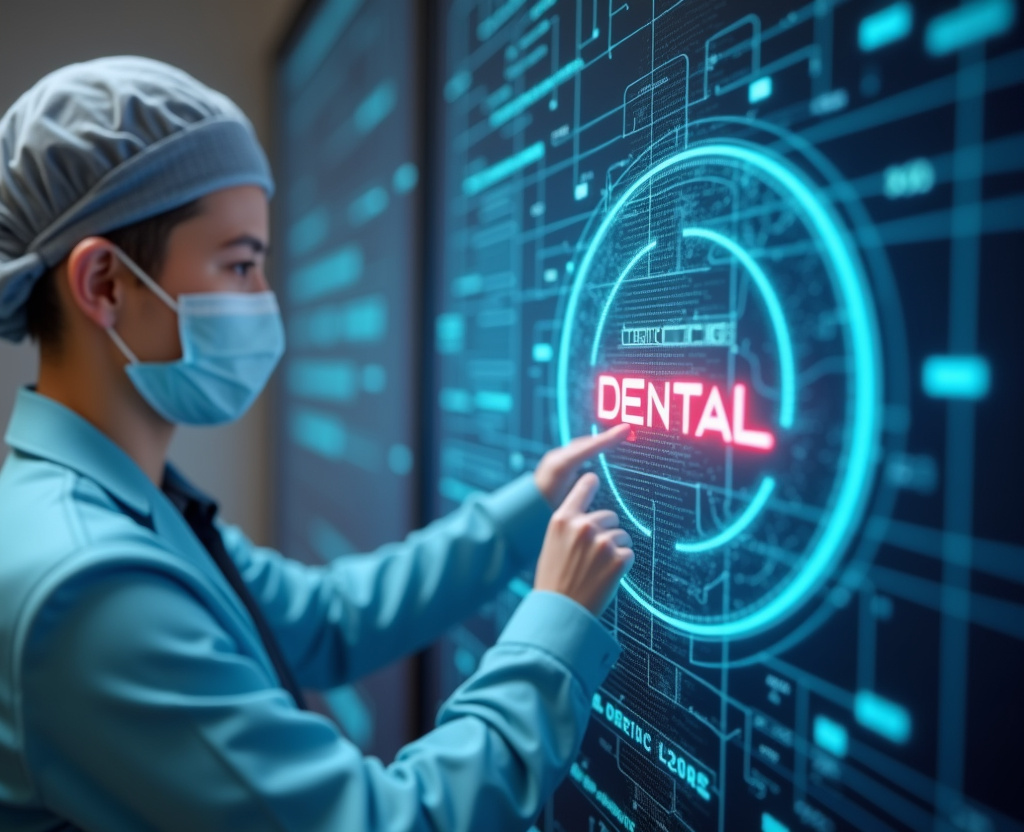
Table of Contents
Introduction: The Growing Need for Security in Dental Practices
In today's increasingly interconnected world, dental practices face a growing challenge: protecting sensitive patient information from cyber threats. This article delves into the critical role of Virtual Private Networks (VPNs) in safeguarding patient records within the unique environment of a dental practice. The digital transformation of healthcare has brought immense benefits, including streamlined workflows, improved patient communication, and enhanced diagnostic capabilities.
However, it has also created new vulnerabilities that can be exploited by malicious actors. Electronic Health Records (EHRs), digital imaging systems, and online appointment scheduling platforms all contribute to a complex digital ecosystem that, while efficient, also presents a tempting target for cybercriminals seeking to steal valuable patient data. A robust VPN can act as a digital shield, providing a secure and encrypted connection for all data transmitted between the dental practice and the outside world.
This is especially vital when accessing sensitive patient information remotely, such as when working from home, accessing files while traveling, or collaborating with specialists at other locations. The use of public Wi-Fi networks in coffee shops or airports, which are notoriously insecure, poses a significant risk to patient data and can easily be avoided with a VPN. Failing to implement adequate data protection measures can result in severe consequences, including hefty fines under regulations like HIPAA, legal repercussions from lawsuits, and irreparable damage to the dental practice's reputation, leading to a loss of patient trust and revenue.
Implementing a dental practice VPN is a crucial investment in protecting patient record security, ensuring data protection, and upholding patient privacy. By encrypting data and masking the IP address, a VPN helps prevent unauthorized access to sensitive information, such as patient medical histories, insurance details, social security information, and personal contact information. Encryption scrambles the data, rendering it unreadable to anyone without the correct decryption key.
This means that even if a hacker intercepts the data, they will be unable to make sense of it. The masking of the IP address provides an additional layer of security by hiding the dental practice's true location, making it more difficult for cybercriminals to target the practice with specific attacks. The importance of maintaining patient trust cannot be overstated.
Patients entrust dental practices with intimate details about their health, expecting their information to be handled with the utmost care and confidentiality. A data breach can erode this trust, leading to a loss of patients and a decline in the dental practice's overall success. News of a data breach can spread quickly, damaging the practice’s reputation and making it difficult to attract new patients.
Furthermore, compliance with healthcare regulations like HIPAA (Health Insurance Portability and Accountability Act) is paramount. HIPAA mandates strict standards for the protection of patient health information, and failure to comply can result in significant financial penalties, investigations, and even criminal charges. A VPN can help dental practices meet their HIPAA obligations by providing a secure environment for data transmission and storage.
By using a VPN, dental practices can demonstrate their commitment to protecting patient privacy and fulfilling their legal obligations. The benefits of a VPN extend beyond mere security; it can also improve the overall efficiency of the dental practice. By providing secure remote access to patient records, a VPN allows dentists and staff to access vital information from anywhere, at any time.
This can be particularly useful for consultations with specialists, emergency situations, or when providing after-hours care. Easy access to patient records can streamline workflows, improve communication, and enhance the quality of patient care. The implementation of a VPN should be considered an essential component of any dental practice's overall security strategy.
It is a proactive measure that can help protect against a wide range of cyber threats, including malware, ransomware, phishing attacks, and data breaches, ensuring the privacy and security of patient information. When researching a VPN for healthcare, it’s important to not only focus on the privacy aspects but also the ease of management and integration with existing systems. Dental practices often have unique software requirements and security protocols, so finding a VPN solution that can seamlessly integrate with these systems is crucial.
Moreover, the VPN should offer robust logging and auditing capabilities, allowing the dental practice to monitor network activity and identify potential security breaches. Regular security audits and penetration testing should be conducted to ensure that the VPN is functioning correctly and that the dental practice's overall security posture is strong, which is important in maintaining the integrity and availability of patient data. A comprehensive approach to security is essential for protecting patient data and maintaining the trust of patients.
Understanding VPNs: How They Protect Patient Data
Selecting the right VPN solution for a dental practice requires careful consideration of several factors that go beyond the basic features often advertised. First and foremost, the VPN should offer strong encryption protocols, such as AES (Advanced Encryption Standard) with a key length of 256 bits. This ensures that all data transmitted through the VPN tunnel is effectively scrambled and unreadable to unauthorized parties, providing a high level of data protection.
While AES-256 is considered the gold standard, understanding the specific implementation and any potential vulnerabilities is crucial. The VPN should also support multiple VPN protocols, such as OpenVPN, IKEv2/IPsec, and WireGuard, to provide flexibility and compatibility with different devices and operating systems commonly used within a dental practice. OpenVPN is often favored for its open-source nature and strong security, while IKEv2/IPsec is known for its speed and stability, particularly on mobile devices.
WireGuard is a newer protocol gaining popularity for its speed and efficiency. The ability to choose between these protocols allows the dental practice to optimize performance and security based on their specific needs and infrastructure. The location of the VPN server is another important consideration.
Ideally, the VPN server should be located in a country with strong data protection laws and a commitment to privacy, such as Switzerland or Iceland. These countries have legal frameworks that protect user data from government surveillance and data breaches. Some countries have laws that allow government access to user data, which can compromise patient privacy.
Therefore, it is essential to choose a VPN provider that operates servers in jurisdictions with favorable privacy regulations and a history of upholding user privacy. The VPN provider's logging policy is also crucial. A reputable VPN provider should have a strict no-logs policy, meaning that they do not track or store any user activity, including browsing history, IP addresses, connection timestamps, and data transfer volumes.
This ensures that there is no record of the dental practice's online activity that could be subpoenaed or compromised in the event of a data breach. It's important to carefully review the VPN provider's privacy policy to understand exactly what data they collect and how they use it. Bandwidth and speed are also important considerations for a dental practice heavily reliant on digital imaging and real-time data access.
The VPN should provide sufficient bandwidth to support the dental practice's data transfer needs without slowing down internet speeds. Slow internet speeds can disrupt workflows and impact the dental practice's ability to provide timely patient care, especially during procedures that require immediate access to patient records or diagnostic images. The VPN should also offer a reliable connection, with minimal downtime and consistent performance, ensuring that the dental practice can always access the information they need.
The VPN provider's customer support is another factor to consider, especially for dental practices with limited IT resources. The VPN provider should offer responsive and knowledgeable customer support to assist with any technical issues or questions that may arise. Look for a VPN provider that offers 24/7 customer support via email, phone, or live chat, and that has a reputation for providing timely and effective assistance.
The VPN should have a user-friendly interface that is easy to set up and configure, even for users with limited technical expertise. Dental practices often have limited IT resources, so it is essential to choose a VPN that is simple to manage and maintain. The VPN provider should offer clear and concise documentation and tutorials to guide dental staff through the setup process and provide ongoing support.
Finally, consider the cost of the VPN solution, but prioritize security and reliability over price. VPN prices vary depending on the features offered and the length of the subscription. Compare the features and prices of different VPN providers to find a solution that meets the dental practice's needs and budget.
Keep in mind that the cheapest option is not always the best, as it may lack essential security features or have poor performance. Careful consideration of these factors will help dental practices choose a VPN solution that effectively protects patient data and supports their business operations. It's beneficial to review each of the options carefully to ensure they align with the specific needs of the dental practice, in reference to the sensitivity of patient information required for data protection, and future scalability needs.
Implementing a VPN: Practical Steps for Dental Offices
Once a VPN solution has been selected, the next step is to implement it effectively within the dental practice, taking into account the specific workflows and security requirements of the environment. This involves configuring the VPN on all devices that access patient information, including desktop computers in operatories, laptops used for administrative tasks, tablets used for patient consultations, and smartphones used for communication and remote access. The VPN client software should be installed and configured on each device, ensuring that it is properly authenticated and connected to the VPN server.
The VPN should be configured to automatically connect whenever the device is connected to the internet, ensuring that all data is encrypted and protected from the moment the device is powered on. This automatic connection feature is crucial for preventing accidental exposure of sensitive data when connecting to unsecured networks. It is essential to educate all dental staff members on the importance of using the VPN and how to connect to it properly.
Training should cover the risks of using unsecured networks, such as public Wi-Fi hotspots, and the potential consequences of a data breach, including financial penalties, legal repercussions, and damage to the practice's reputation. Staff members should also be trained on how to identify phishing emails and other social engineering attacks that could compromise the VPN or lead to the disclosure of patient information. Regular training sessions and refresher courses should be conducted to reinforce these concepts and keep staff members up-to-date on the latest security threats.
The VPN should be integrated with the dental practice's existing security infrastructure, including firewalls, intrusion detection systems, and antivirus software. The firewall should be configured to allow only VPN traffic to pass through, blocking all other incoming and outgoing connections. The intrusion detection system should be monitored for any suspicious activity, such as unauthorized attempts to access patient data.
Antivirus software should be installed and kept up-to-date on all devices to protect against malware that could compromise the VPN or the practice's data. Furthermore, multi-factor authentication (MFA) should be implemented for all VPN users. MFA adds an extra layer of security by requiring users to provide two or more forms of authentication, such as a password and a code sent to their smartphone, before they can connect to the VPN.
This makes it much more difficult for hackers to gain unauthorized access to the VPN, even if they have stolen a user's password. The VPN should be regularly monitored for performance and security issues. The VPN provider should provide tools for monitoring VPN traffic, bandwidth usage, and connection logs.
This information can be used to identify potential bottlenecks, security threats, or unauthorized activity. Regular security audits should be conducted to assess the effectiveness of the VPN and identify any vulnerabilities. These audits should be performed by a qualified security professional and should include penetration testing, vulnerability scanning, and a review of the VPN's configuration and security policies.
The VPN's security policies should be clearly defined and documented. These policies should cover topics such as acceptable use of the VPN, password requirements, data security procedures, and incident response procedures. The policies should be regularly reviewed and updated to reflect changes in the threat landscape and the dental practice's security requirements.
It is also crucial to establish a clear incident response plan in the event of a data breach or other security incident. This plan should outline the steps that need to be taken to contain the incident, assess the damage, notify affected parties, and restore operations. The incident response plan should be regularly tested and updated to ensure that it is effective and that all staff members are familiar with their roles and responsibilities.
By implementing these best practices, dental practices can ensure that their VPN is effectively protecting patient data and supporting their business operations. Continuous vigilance and proactive security measures are essential for maintaining a strong security posture and protecting against the ever-evolving cyber threats. This includes staying informed about the latest security threats and vulnerabilities, regularly updating software and hardware, and conducting ongoing security training for staff members.
VPNs for Services: Enhancing Security Subscriptions
Beyond the technical implementation and ongoing maintenance, several considerations significantly impact the long-term effectiveness of a dental practice VPN. One crucial aspect is ensuring VPN compatibility with all software and hardware systems used within the practice. Dental practices rely on specialized software for patient management, imaging, billing, and other critical functions.
Before deploying a VPN, it's imperative to test its compatibility with these applications to avoid disruptions in workflow or data access issues. Some VPN configurations may interfere with the functionality of certain software, requiring adjustments to network settings or VPN configurations to ensure smooth operation. Hardware compatibility is equally important.
The VPN should seamlessly integrate with all devices used to access patient information, including computers, laptops, tablets, smartphones, and specialized equipment like digital X-ray machines and intraoral cameras. Incompatibility issues can lead to frustration, decreased productivity, and potential security vulnerabilities. Regular testing and updates are crucial to maintain compatibility as software and hardware systems evolve.
Another key consideration is the VPN's impact on network performance. While a VPN provides enhanced security, it can also introduce some overhead that may affect network speed and latency. The level of impact depends on factors such as the VPN protocol used, the encryption strength, the distance to the VPN server, and the overall network infrastructure.
It's essential to monitor network performance after deploying a VPN to identify any bottlenecks or slowdowns. If performance issues arise, consider optimizing VPN settings, upgrading network hardware, or choosing a VPN provider with a faster network infrastructure. In some cases, implementing split tunneling may improve performance by routing only sensitive traffic through the VPN while allowing other traffic to bypass it.
However, split tunneling should be carefully configured to ensure that patient data is always protected. VPNs also play a crucial role in enabling secure remote access for authorized personnel. Dentists and other staff members may need to access patient records or other sensitive information from outside the office, such as when working from home, attending conferences, or responding to emergencies.
A VPN provides a secure and encrypted connection that protects data during transmission, preventing unauthorized access by hackers or eavesdroppers. When setting up remote access, it's essential to implement strong authentication measures, such as multi-factor authentication, to verify the identity of users before granting access to the VPN. Remote access policies should also be clearly defined and enforced to prevent unauthorized access or misuse of patient data.
Regular audits of remote access logs can help detect suspicious activity and ensure compliance with security policies. Furthermore, a well-defined disaster recovery plan is essential for maintaining business continuity in the event of a system failure, natural disaster, or security breach. The disaster recovery plan should include procedures for restoring VPN connectivity and ensuring continued access to patient data.
Regular backups of patient data should be stored securely offsite, and the disaster recovery plan should be tested periodically to ensure its effectiveness. The VPN itself should be considered a critical component of the disaster recovery plan, as it provides a secure and reliable means of accessing data and restoring operations in the event of a disruption. By addressing these broader considerations, dental practices can maximize the benefits of their VPN and ensure that it effectively protects patient data while supporting their business operations.
This holistic approach to VPN implementation, management and incident responses, combined with continuous improvement and proactive security measures, will enable dental practices to maintain a strong security posture and protect patient privacy in the long term.
In conclusion, the integration of a Virtual Private Network (VPN) into the daily operations of a dental practice is no longer a luxury but a necessity for safeguarding patient records, ensuring data protection, and upholding privacy in an increasingly interconnected digital landscape. This article has illuminated the various facets of VPN implementation, from selecting the appropriate solution to establishing robust security policies and ensuring ongoing maintenance and monitoring. The key takeaway is that a VPN acts as a vital shield, encrypting sensitive patient data and masking IP addresses to prevent unauthorized access and cyber threats.
By prioritizing patient record security, dental practices can foster trust and maintain compliance with stringent regulations such as HIPAA. The benefits of a VPN extend beyond mere security, enhancing operational efficiency by enabling secure remote access for authorized personnel. This allows dentists and staff to access critical information from anywhere, at any time, facilitating collaboration, consultations, and after-hours care.
The selection process for a VPN solution should be approached meticulously, taking into account factors such as encryption strength, VPN protocols, server location, logging policies, bandwidth capacity, and customer support. Opting for a reputable VPN provider with a proven track record in data protection is crucial. Implementation involves configuring the VPN on all devices that access patient information, including computers, laptops, tablets, and smartphones.
Educating staff members on the importance of VPN usage and providing comprehensive training on identifying security threats is paramount. Integrating the VPN with existing security infrastructure, such as firewalls and intrusion detection systems, strengthens the overall security posture of the dental practice. The implementation of multi-factor authentication (MFA) provides an extra layer of security, significantly reducing the risk of unauthorized access.
Ongoing monitoring and security audits are essential for detecting potential issues, vulnerabilities, and suspicious activity. Establishing clear security policies and incident response plans ensures preparedness in the event of a data breach or other security incident. Compatibility with existing software and hardware systems must be carefully considered to avoid disruptions in workflow or data access issues.
Optimizing network performance to mitigate any potential slowdowns caused by the VPN ensures seamless operation. Regular backups of patient data stored securely offsite, combined with a robust disaster recovery plan, are crucial for business continuity in the face of unforeseen events. To stay ahead of evolving cyber threats, dental practices must adopt a proactive approach to security, continuously updating software and hardware, staying informed about the latest vulnerabilities, and conducting ongoing security training for staff members.
By embracing these best practices, dental practices can effectively protect patient data, maintain trust, and achieve long-term success in a secure digital environment. In essence, the integration of a VPN is an investment in the future of the dental practice, ensuring that it can continue to provide high-quality care while safeguarding the privacy and security of its patients. Prioritizing patient record security, data protection, and privacy fosters trust and enhances the reputation of the dental practice.
Stay Updated
Get the latest VPN news, tips, and exclusive deals to your inbox.
